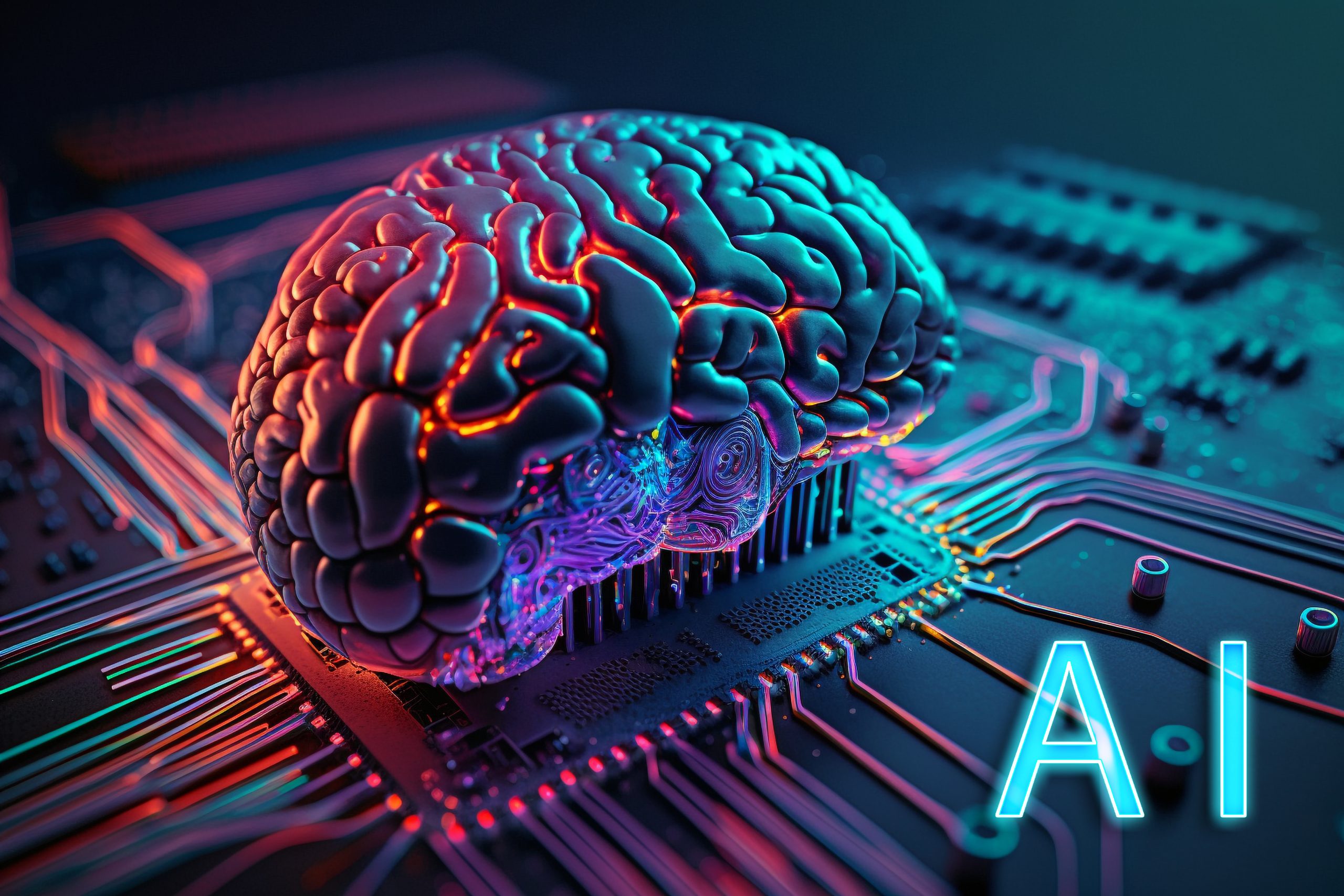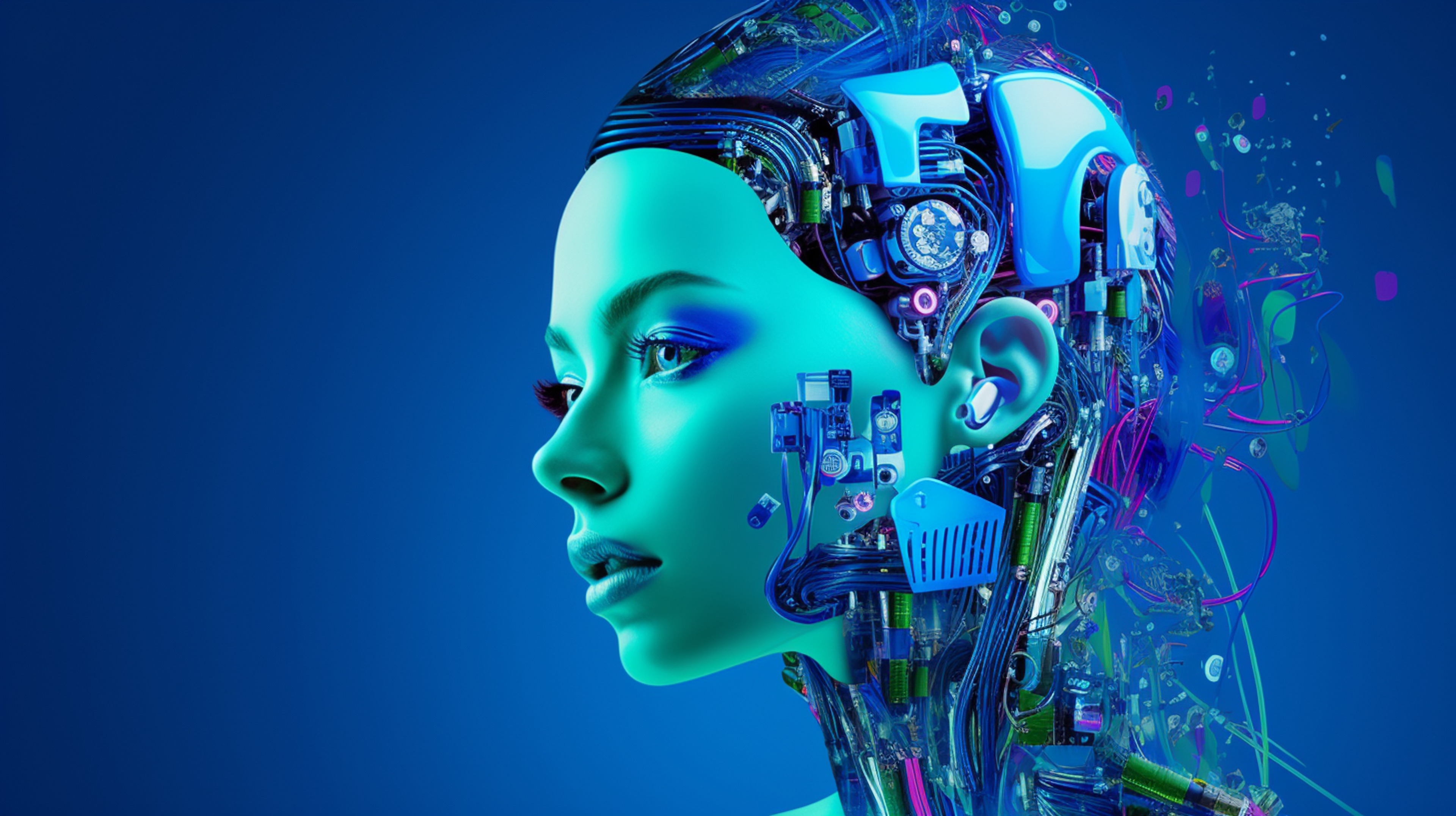
Artificial Intelligence (AI) has become an integral part of our lives, influencing various aspects from healthcare to finance. As AI systems continue to evolve and play a more significant role, it is crucial to ensure their ethical implementation.
This article will explore the fundamental principles and practical steps of how to implement ethical AI, fostering responsible development and deployment of these powerful technologies.
What Are AI Ethics?
To guarantee the responsible development and use of artificial intelligence technology, stakeholders (ranging from government officials to engineers) rely on a set of guiding principles known as AI ethics. This necessitates a method of AI development that is secure, safe, compassionate, and ecologically conscious.
A robust code of ethics for AI might include measures to reduce environmental dangers, protect user privacy, and prevent prejudice. Two primary means of incorporating AI ethics into practice are company codes of ethics and regulatory frameworks spearheaded by the government.
Both systems contribute to the regulation of AI by addressing national and international ethical AI challenges and providing the legislative framework for ethical AI in businesses.
On a broader scale, AI ethical discussions have expanded beyond the realm of academics and NGOs. Big digital corporations have formed teams to address the ethical concerns that come with gathering large quantities of data.
IBM, Google, and Meta are just a few examples. Simultaneously, governmental and intergovernmental bodies have started to formulate ethical policies and regulations based on academic research.
Why Is Ethical AI Important?
AI Introduces Novel Risks
Market research predicts that by 2023, the worldwide AI industry will have generated $500 billion in sales thanks to widespread AI use.
Increased efficiency, more innovation, personalized services, and less strain on human workers are just a few of the many potential advantages of AI and automation. However, there are also new hazards associated with AI use that must be considered.
Take the insurance industry as an example. AI has the potential to increase premiums for minority persons and provide healthcare treatments to white consumers at the expense of sicker Black patients.
It has come to light that some algorithms used by law enforcement to predict the probability of recidivism, the reoffending of a criminal, tend to favor Black defendants over white defendants, even after controlling for characteristics like age, gender, and number of past offenses.
Ethical AI Can Safeguard Against Harms
However, following AI ethics may avoid or considerably decrease these problems. Unbalanced training data, when some categories are underrepresented, might cause bias.
The Gender Shades experiment revealed that commercial gender categorization tools were most accurate for lighter-skinned males and least accurate for darker-skinned females. The models were trained on primarily white male data, which explained this gap.
Amazon's scrapped resume screening tool was biased against females using “women's” in their resumes (e.g., “women's only college”) because it was trained using the resumes of the majority of male applicants for technical positions at the company over the past decade.
Differences in data used to train the model caused bias against the underrepresented group in both scenarios. This may have been avoided by including AI ethics in the design.
The importance of AI ethics, particularly explainability, was highlighted when Apple was criticized for giving a man a higher credit limit than his wife, despite her higher credit score, using its Apple Card algorithm.
Apple was absolved of wrongdoing, and Goldman Sachs, the card provider, was able to clarify the model's judgments, underlining the need to make AI as transparent as possible to explain decisions to stakeholders.
What Does It Mean For Companies?
Companies are under pressure to develop and deploy AI ethically as adoption grows, public knowledge of the dangers rises, and regulatory focus increases.
Soon, firms must use ethical AI legally. Future New York City law would mandate independent, unbiased bias audits of computerized employment decision systems used to assess applicants for jobs or promotions.
Colorado law prohibits insurance companies from utilizing discriminating data or algorithms. The EU AI Act proposes to regulate ‘high-risk’ AI systems used in HR, banking, and education. This will be the first comprehensive AI development and usage legislation globally.
The AI Act is expected to be the “GDPR for AI” with heavy penalties for non-compliance, extra-territorial reach, and several required requirements for AI developers and deployers.
Ethical Challenges Of AI
AI And Bias
Decisions made by AI could be influenced by prejudice if the data they use doesn't fairly reflect the population. A 2018 controversy erupted when Amazon's AI recruitment tool was shown to devalue applications that included the word "women" (e.g., "Women's International Business Society"). The AI technology essentially promoted sexism and put the tech company in jeopardy with the law.
AI And Privacy
Lensa AI is only one example of how AI uses data culled from many online sources, such as searches, social media, online transactions, and more. While this may improve the customer service experience by making it more tailored to each individual, others worry that these corporations may need to have genuine permission to access our data.
AI And The Environment
Training on data may be an energy hog for specific AI models due to their size. While efforts are underway to develop AI that uses less energy, more should be done to address environmental ethics in AI policy.
The Need For Responsible AI
Responsible use of client data is of the utmost importance for any consumer-facing firm using AI technology. Both the reduction of model bias and the preservation of data security and privacy must be given equal weight by tech executives utilizing AI at all times.
Responsible AI practices should remove biases from the models that drive it, in addition to guaranteeing data security. In order to guide clients toward the best technology, businesses should routinely assess whether or not their suppliers' models include any bias. Additionally, this mistake should fix pre and post-processing rule biases.
Businesses can't do away with the biases in AI systems that are trained on massive amounts of data, but they may try to lessen the impact of any adverse outcomes. Presented below are a few guidelines for optimal operations.
Put People First
While AI has the potential to alleviate some of the monotony of human labor, people should always come first. Build a society that doesn't see AI and humans as mutually exclusive. Leverage the intelligence, empathy, and skill of human teams as AI generates more efficiency.
Consider Data And Privacy Goals
The next question to address after establishing the organization's purpose, vision, and long-term objectives is: What does the company own? Although the level of accuracy is far more significant in some instances, some basic models or solutions can be used even without training data.
For optimal outcomes, tailor AI systems to align with organizational objectives and data. At this stage, biases may be eliminated by proper data preparation and cleaning. In order to create ethical AI solutions, it is crucial to remove bias from data. Eliminating elements that have an effect on the final product and contribute to the maintenance of preexisting biases is possible.
For your data's privacy, pledge to safeguard all of it, no matter how much you gather. One approach is to partner only with third-party providers who keep essential security certifications, such as ISO27001, and adhere rigidly to the requirements of important laws, like GDPR.
It takes a lot of work to comply with these rules and get these certifications, but doing so shows that the company can keep client data safe.
Implement Active Learning
Give humans a chance to weigh in on how well and how biased a system is after it's up and running. Establish procedures for reporting and resolving concerns if users notice that output varies between scenarios. It is possible to implement this modification to the output at the heart of the AI system.
Google, Microsoft, and the European Commission are just a few of the world's giant corporations that have developed and disseminated frameworks for responsible AI in the last several years. Partners and consumers will expect responsible AI as more enterprises use the terminology.
Having extra aid is helpful when your brand's image, relationships with staff and consumers, or even millions of dollars may be destroyed with a single slip-up.
Nobody wants to partner with a company that deploys biased AI solutions or is reckless with its customers' data. Your company will get greater confidence from customers and see the advantages of AI sooner if it addresses these concerns.
10 Guidelines For Enhancing AI Ethics
Develop A Code Of Ethics
An ethical AI framework must begin with the formulation of a code of conduct. The concepts and ideals that your AI system should uphold should be outlined in this code.
Everyone, from workers to clients to industry experts, should have a say in the code's development. This will make sure that everyone's requirements and ideals are reflected in the code.
Ensure Diversity And Inclusion
It is critical to prevent repeating biases by using diverse and inclusive data to train your AI system. Harmful discriminatory results, impacting people or groups, may result from this. Consequently, it is critical to utilize data that is varied in terms of gender, color, ethnicity, and other characteristics.
Monitor The AI System
Keep an eye on the AI system to make sure it's doing its job and isn't creating any problems. System analysis, auditing, and testing should be done on a regular basis.
Errors or difficulties that occur may also be identified and addressed via monitoring. By doing so, we can make sure the AI system keeps acting morally.
Educate Employees
Staff members must be trained to create and use AI ethically, and they must be educated on the moral consequences of AI. That way, we can be confident that everyone working on or utilizing AI systems is on the same page when it comes to the significance of ethical AI.
Employees will be better able to recognize and address any ethical difficulties if they get training on the subject.
Transparency
Your AI system must be open and honest about its inner workings and the data it utilizes. Customers and workers, among other stakeholders, maybe more easily trusted when there is transparency.
Additionally, it aids in preventing the AI system from being used for the purpose of exploiting people or groups. Consequently, openness about the data utilized for AI training, the algorithms used, and decision-making processes is crucial.
Address Privacy Concerns
Building ethical AI requires attending to privacy problems. The collection, processing, or storage of personally identifiable information might give rise to privacy issues.
Verifying the AI system complies with data protection standards is of utmost importance. Another critical step in safeguarding individuals' privacy is making sure their data is safely gathered and handled.
Consider Human Rights
Some people or organizations may suffer as a result of AI systems' unforeseen effects. Because of this, designing and deploying AI systems must take human rights into account. This involves taking measures to prevent the AI system from being used in a discriminatory manner.
Anticipate Risks
It is essential to keep an eye out for such dangers and take precautions before they happen. Three potential sources of AI system risk are the data used for training, the algorithms used, and the AI system's actual usage.
Consequently, you must think forward to possible dangers and figure out ways to lessen their impact. This will be useful in making sure the AI system doesn't do anything bad and acts ethically.
Conduct Ethical Reviews
To keep your AI system in line with the required norms, it is necessary to undertake ethical evaluations regularly. Reviewing the AI system's performance, looking for ethical problems, and fixing them should all be part of an ethical assessment.
Partner With Ethical Providers
If you want to build and deploy ethical AI, you must partner with suppliers that share your values. When searching for a supplier to build and implement an AI system, make sure they put human rights, transparency, diversity, and inclusion first.
FAQs About Implemention Of Ethical AI
How Do You Implement AI Ethics?
Establish AI project governance with defined owners and stakeholders. Choose which choices to automate using AI and which to make manually. Set defined AI system development limits and assign responsibility for all process steps, including AI mistakes.
What Are The Ethical Ways Of Using AI?
When it comes to core principles like non-discrimination, privacy, individual rights, and non-manipulation, ethical AI is all about following clearly defined ethical norms.
How To Implement Ethical AI In Retail Marketing?
Ethical behavior requires purposeful prejudice reduction. AI systems must be regularly assessed and audited to discover and correct biases and ensure diversity and inclusion in AI-powered marketing strategy creation and implementation.
How Do You Use AI Ethically For Ethical Decision-making?
Responsibility: Developers and users of AI decision-making systems should be held accountable for their judgments. This involves checking for bias and mistakes and mitigating unwanted results.
What Is Ethical AI Design?
Fairness, transparency, and privacy are three pillars of AI ethics in design: AI systems should refrain from prejudice, disclose how they operate, and safeguard users' private information.
In The End
The key to a responsible AI future lies in conscientiously adhering to ethical principles. By prioritizing transparency, fairness, and continuous monitoring, organizations can navigate the intricate landscape of AI responsibly. The crux is not just understanding but actively embodying the ethos of "how to implement ethical AI" at every stage, ensuring technology serves society positively.



